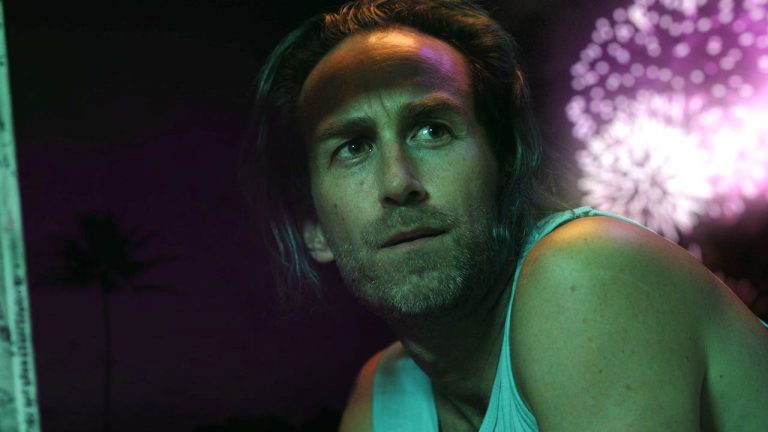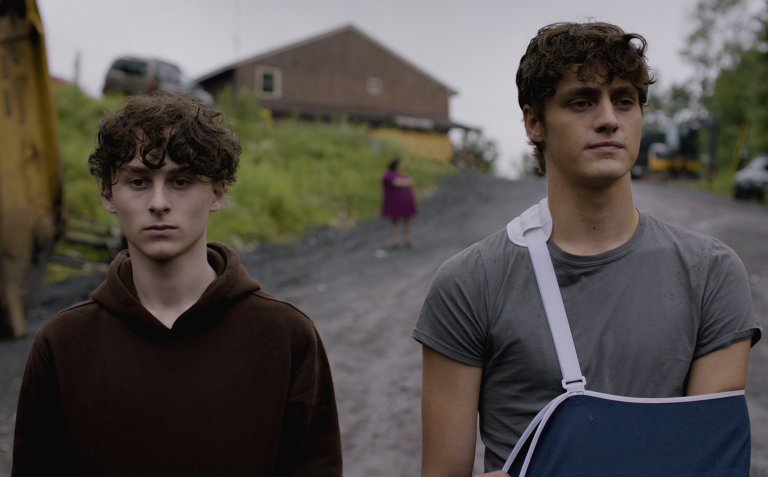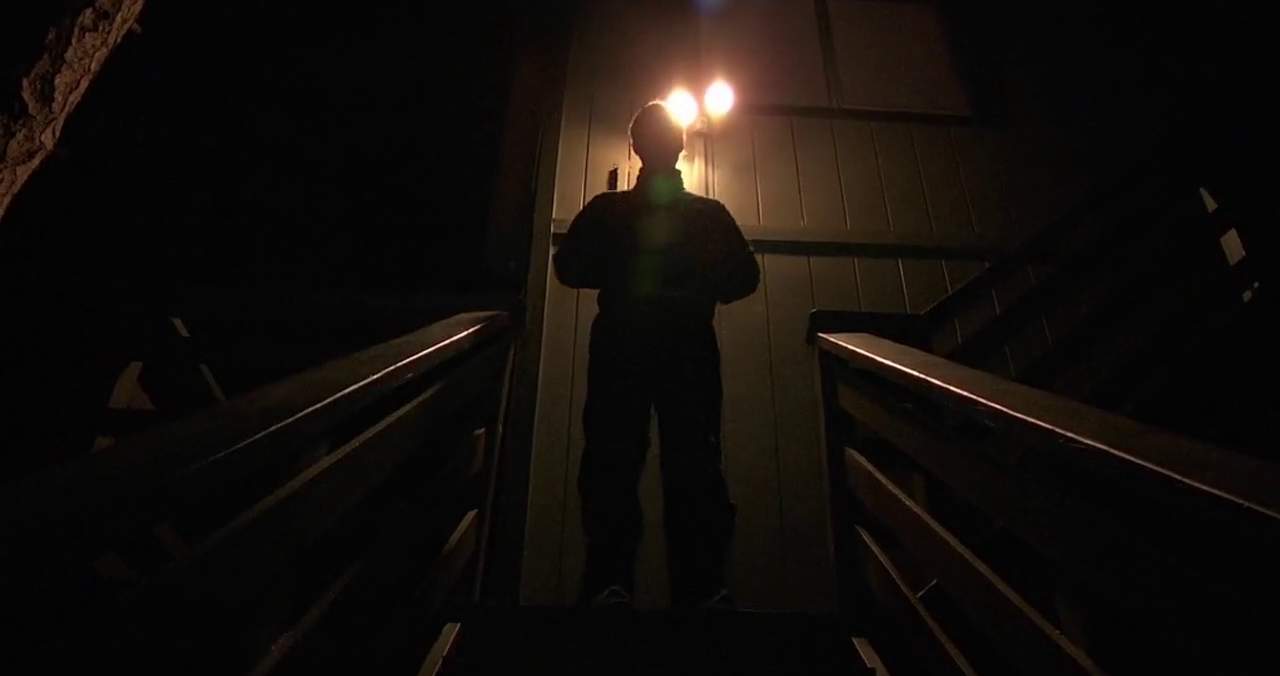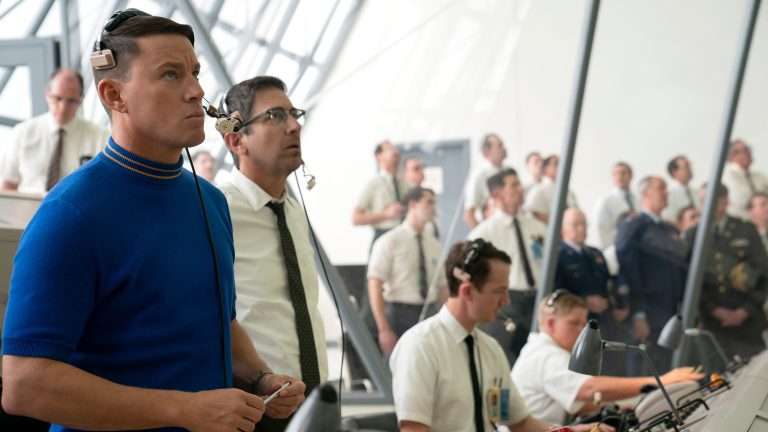In Bridgerton, Queen Charlotte (Golda Rosheuvel) rules over the proceedings of the ton with an iron fist. No, she does not involve herself in terribly important affairs, but she oversees the matchmaking prospects of society with a sharp, uncompromising eye. As the Netflix series predominantly focuses on the titular Bridgerton family, there’s more left to be desired when it comes to Queen Charlotte’s backstory.
Who is she as a person, and what kind of circumstances led to her current eccentric, no-nonsense self? Queen Charlotte: A Bridgerton Story attempts to answer these questions by situating a young Charlotte (India Amarteifio) as an impromptu bride for a young King George III (Corey Mylchreest). At its core, this prequel miniseries is a love story. But it also touches upon the intertwined pasts of familiar faces, such as Lady Danbury and Violent Bridgerton, who have more catching up to do than they realize.
In the Mothership series, George (James Fleet) has always been a mystery. Mostly absent from events due to ill health, George seems to exhibit symptoms of amnesia, and his relationship with Charlotte is warm but distant. As someone obsessed with choosing every season’s diamond, Charlotte immerses herself completely in the matchmaking shenanigans of wedding season, leaving little to no space for us to understand how her own marriage faired or evolved over time. Queen Charlotte: A Bridgerton Story turns back time and fills in the gaps while occasionally charting back to the present.
Queen Charlotte: A Bridgerton Story ‘Netflix’ Miniseries Recap:
The Story Thus Far: A Marriage of Convenience
The British monarchy, in an attempt to put on a front of diversity, arranged a marriage between George and Charlotte, a girl from native Germany. The marriage is more of a contract, if anything, because Charlotte is not given a say in her own future, and her brother Adolphus promptly signs away her hand without even consulting her.
When Charlotte arrives in London and meets George’s mother, Princess Augusta (Michelle Fairley), she is made to feel like a commodity whose sole aim would be to please her would-be husband and birth babies and uphold the esteem of the monarchy. Apart from deeply sexist behaviors, which are reflective of the times, there’s a considerable amount of outright racism, too, such as when Augusta remarks that Charlotte is “very brown” and that it would be a “problem” for the monarchy.
In an attempt to pass off overt racism as a genuine gesture towards diverse inclusivity, Augusta and Co. decide to launch something known as The Great Experiment, which would legitimize their choice of Charlotte as a bride. In order to display a veneer of equal footing, Augusta decides to invite other people of color in the ton to the wedding to represent Charlotte and is forced to grant them titles and equal opportunity. All of these measures are a desperate attempt to save face, of course – in the process, Charlotte unwittingly emerges as a symbol of hope for her people, who have been socially oppressed and treated unfairly for a long, long time.
Enter King George, Farmer and Lover of Astronomy:
Charlotte is immediately expected to adhere to the traditions of the monarchy, which includes making peace with restricted freedom and discarding her own customs in favor of theirs. Charlotte, however, is not the kind of person to play along, and she decides to run away during her wedding by attempting to scale a garden wall. This is when George spots her, and the two have a meet-cute where they exchange some tender words with one another. George says that while their marriage is one of convenience, it is only fair that Charlotte should have a choice as to whether she wants to marry at all. He introduces himself, tells her his hobbies, and vows to try his best to keep her happy. Thrilled with this first impression, Charlotte decides to marry him.
However, their wedding night comes to an abrupt halt when George decides to return to his him in Kew, saying that now that the festivities are over, they should go live their separate lives. Charlotte is understandably angry, demanding to know whether this is how their marriage will always be — she at Buckingham House, and he at Kew. He says yes, and storms away, leaving her alone.
What ensues are listless days where Charlotte has to be dressed three times a day to go about and exist around the house. Her trusty footman, Brimsley (Sam Clemmett), is always five paces behind her. She is the center of attention as she eats alone in a massive dining hall, with a dozen helpers surrounding her, and she does not even have the luxury of picking her own orange. While her life is lavish, she feels terribly alone and jaded, teetering on the realization that George is not interested in her at all.
Amidst all of this, Augusta and the other dudes at the House of Lords obsess about whether Charlotte and George have consummated their marriage, as it would solidify their legitimacy with an heir. In order to accelerate the situation, Augusta and Lady Danbury work together — this is a complex situation, as Danbury is truly Charlotte’s friend and ally and simply wishes to use her proximity to her as a bargaining chip for social mobility.
No one can blame her for doing this, as she wants to push the confines of unfair discrimination that she has had to endure, and as a woman, she needs to cater to her husband’s needs even though she loathes him. Lord Danbury is every bit of a bumbling old man, entitled solely due to the fact that he’s a man and riding on the accomplishments of his wife without ever giving her the credit that is due.
Odd and Even Days, a Truth Revealed, and Tragedy Ensues
The kind of society that Charlotte lives in prevents frank and necessary conversations surrounding sex and what the “marital act” actually entails. Men are free to sleep around with mistresses. Still, the mere idea of a woman of nobility being too intimately aware of sexual matters is looked down upon, and Charlotte has no clear idea about what she can expect from the act. Lady Danbury guides her with crude drawings but tints her experience of sex through the lens of her own unpleasant, dissatisfied relationship with her husband, which confuses Charlotte further.
George is at Kew anyway, so she decides to take matters into her own hands and visit him to demand an explanation. Is the man visiting brothels? Is he gambling? No, George is busy in his little observatory, looking at the stars and planets and being lost in the wonder of endless possibilities.
Misunderstandings are birthed anew, as Charlotte is unable to understand why George would prefer the company of stars over hers. George doesn’t understand Charlotte’s acute loneliness either, as he has always coveted a moment of solitude, having lived as a person of nobility who is always surrounded by people and is constantly attended to. Brimsley, and George’s footman, Reynolds (Freddie Dennis), try and build a bridge between them by gifting Charlotte a pomeranian on George’s behalf. This displeases her, as she thinks it is not enough of an apology, but eventually, the two meet each other halfway, and the marriage is consummated.
Constant pressures from the House of Lords and his own mother lead George to express his frustrations with living a facade for the sake of the nation. Charlotte is hurt on learning that their bond is nothing but a performance and a duty, but the two are naturally attracted to each other but hide it under the guise of having sex on even days to boost the chances of pregnancy.
The passion shared between them is all too real, but both parties are too hung up on their own feelings to express this freely. Things become tenser when Charlotte learns that George suffers from mental illness, leading to periods where he is unaware of who he truly is. Charlotte approaches this situation with the utmost compassion, as she decides to help him as much as possible and create a safe space for him when he’s most vulnerable.
Queen Charlotte: A Bridgerton Story ‘Netflix’ Miniseries Ending, Explained:
All is Well in the Ton at the End
A lot goes down after this juncture. In the present, Charlotte is struggling with the issue of a legitimate royal heir, despite having numerous children. The flashbacks map out the nuances of their relationship: although they live apart, Charlotte does not give up on George and decides to stick with him through thick and thin. George loves his queen, and it is apparent that the two share warmth and tenderness, which carries over to the present.
In the end, the present queen visits her husband, and the two lie under the bed together to “hide from the heavens,” a scene that charts their bond over space and time. Even though George is still unwell, what matters is that they love one another and are loyal to each other in more ways than one. The physical separation is necessary, as it helps George plunge into passions that help soothe his condition, while Charlotte gets to live life as per her desires.
Meanwhile, Lady Danbury is revealed to have had an affair with Violet’s father after her husband passes away, and this shocking realization hits present-day Violet pretty hard. She’s still grieving the death of her husband and is pretty shaken by the reveal, but she decides to forgive Lady Danbury after all. The two share a candid relationship, where they can be honest with one another, and this leads to many realizations about the things women often have to do to even survive in a patriarchal society and how having a loving partner is a luxury in a world driven by pre-arranged conveniences.
Reynolds and Brimsley, who were lovers in the past, are hinted to have either drifted apart or separated for some reason. Brimsely is shown dancing alone in the dark, which is heartbreaking, as we are not sure what happened to Reynolds and whether the two were able to continue their relationship for long. Although the moment is bittersweet, Reynold’s memory brings solace and happiness for Brimsley, as the thought of the man he loved and who loved him grants him a moment of peace.
As for the royal heir fiasco in the present is resolved after all, after one of Charlotte’s children marries within the nobility and is on the way to producing an heir. This ties up the little story rather neatly, and all is well in the ton again. Well, not really; one still has to deal with the cruelties of a marriage of convenience and the pitfalls of being an ambitious woman in a society geared to serve and satiate men. The struggles are lifelong and neverending.







![Moxie [2021] Netflix Review: A Daring Reinterpretation of Punk Feminism](https://79468c92.delivery.rocketcdn.me/wp-content/uploads/2021/03/Moxie-1-highonfilms-768x432.jpg)

